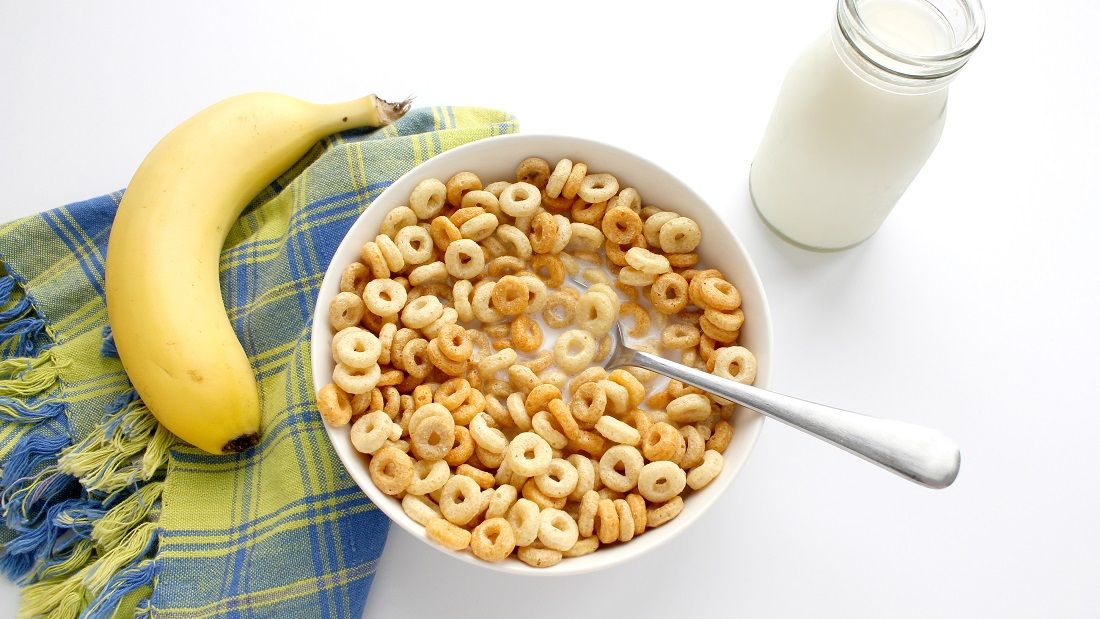7 foods people think are healthy but are not

Health myths abound in the food aisles of our supermarkets and health food stores not to mention in the sensational daily headlines too. We are often led, by clever but deceptive marketing, to believe that many unhealthy foods are actually good for us. This misinformation is often amplified by other spurious online sources. To unpick this misinformation, here are seven of the most common foods that are sold to us as healthy but could actually cause us harm.
1. Chicken
Heralded as a ‘lean’ white meat, chicken is often touted as a healthy source of protein by fitness enthusiasts. However, this couldn’t be further from the truth. Just like red meat, chicken is high in cholesterol and saturated fat, which can lead to heart disease. In fact, researchers found that factory farmed chicken contains more calories from fat than protein.
Another study in the American Journal of Clinical Nutrition concluded: “The findings are in keeping with recommendations promoting diets with a high proportion of plant-based food but, based on lipid and lipoprotein effects, do not provide evidence for choosing white over red meat for reducing CVD [cardiovascular disease] risk.” In other words, to avoid heart disease, don’t just avoid red meat, avoid all meat.
2. Fish
Despite the hyperbolic claims, there is no evidence to suggest a diet including fish is superior to a wholefood plant-based one. In fact, consuming fish comes with added risks, including mercury poisoning, chemical pollutants such as PCBs and dioxins, and viruses such as norovirus.
Although we’ve been fed the claim that fish is good for our heart, there is little if any evidence for this. Some studies even show that oily fish, and particularly fish oil supplements, can actually have the opposite effect. The American Heart Association says this might be explained by the damaging effects of methylmercury in fish. A study of men in Eastern Finland, where mercury levels in fish are high, found that the level of mercury in their hair and the amount of fish they ate were linked to an increased risk of cardiovascular death. Thankfully there’s a way to have a healthy heart without eating fish: cardiovascular exercise!
There is no denying that fish contains omega-3 fatty acids which are good for our brain but there are better ways to obtain this without all the aforementioned risks. You can provide your grey matter with all the omega-3 it needs by taking a vegan EPA and DHA supplement derived from algae and, once again, exercise has also been shown to improve many aspects of brain health.
3. Cow’s milk
How many times have you heard that drinking cow’s milk will give you strong bones? Yes, dairy does contain calcium but cow’s milk and dairy products are not natural foods for us – we are best suited to drinking human breast milk as babies only. Consuming dairy products made from the milk of a different species is not just unnatural, it’s also unnecessary and may harm your health.
Dairy consumption has been linked to many health conditions such as acne, allergies, digestive problems and even cancer. A 2022 study found that men who consume dairy, especially milk, have a higher risk of prostate cancer than those consuming little or no milk. The biggest increases in risk were seen at relatively low intakes of dairy and there was little difference between full-fat and low-fat products. Non-dairy sources of calcium such as plant milks did not increase the risk and the authors say that the difference could be due to sex hormones in dairy milk. That’s right, it’s not the plant oestrogen in soya milk we need to worry about (that is actually good for us) but the many naturally occurring hormones and growth factors found in cow’s milk! Why are they there? Because milk comes from a mother cow who has recently given birth.
If you want a healthier way to look after your bones the best thing you can do is regular resistance exercise and eat plenty of plant sources of calcium, such as calcium-set tofu, tahini and darky leafy greens. For an added level of insurance, drink plant-based milks fortified with calcium.
4. Coconut oil
Deceptive marketing isn’t just limited to the meat and dairy industry. Coconut oil has experienced a huge revival in popularity over recent years and is now found in every health food shop across the country. Unfortunately though, it’s better left on the shelf.
Although the virgin coconut oil of today differs from the trans fat-containing hydrogenated oil used in junk food in the 1980s, its saturated fat content is still a concern. Many of the health claims made for coconut oil are a mixture of anecdotal evidence, pseudoscience and poor reporting of a limited number of flawed studies (conducted over short periods of time with small numbers of participants). The results are not significant enough to suggest long-term benefit. Enthusiasts appear to have extrapolated the potential benefits exaggerating them beyond anything the science supports. However, what is certain is the link between saturated fat and heart disease, therefore making coconut oil a less-than-ideal food. It might be great as a body moisturiser, but don’t be tempted to swallow a spoonful at the same time.
5. Breakfast cereal
We’ve been told for years that breakfast is the most important meal of the day but, of course, that depends on what you put in your breakfast bowl. Most breakfast cereals – and even granola and muesli – are extremely high in sugar and often made with refined grains. It’s hard to believe that throughout their entire adolescence many children start the day with corn flakes or grain hoops coated in refined cane sugar or syrup. Even cereals as innocent sounding as ‘ready oats’ can contain sugar, and even if they don’t, because they’ve been ground up so finely, they can cause blood-sugar levels to spike higher than less-processed rolled oats.
If you’re looking for a healthier cereal, option stick to sugar-free options (there are some although they can be hard to find hidden amongst all the unhealthy options) or those that use a healthier alternative, and stick to coarse and rolled oats rather than instant varieties.
6. Fruit juice
It may come from one of the healthiest food groups, but fruit juice cannot be considered a healthy option. This is because it is high in fruit sugar (fructose) but low in all the other good stuff found in the whole fruit.
When a fruit is juiced, all the insoluble fibre in the flesh is discarded. When we eat a whole piece of fruit, the fibre slows down the release of the fructose allowing our liver time to easily convert it into glucose, which we can use as energy and store as glycogen in our muscles. However, if too much fructose hits the liver at once, which is the case when we down a glass of fruit juice, it cannot turn it all into glucose so instead creates fat in a process called lipogenesis. This can lead to non-alcoholic fatty liver disease and weight gain. All this sugar can also be bad for our teeth.
If you’re looking for a healthier hit of vitamins and minerals, homemade smoothies are a better option as long as you use the whole fruit. They should still be sipped slowly though – ideally with a reusable straw to reduce contact with your teeth – as blending releases some free sugars from the fruit.
7. Himalayan pink salt
Himalayan salt is a rock salt from Pakistan, which gets its pink colour from the trace minerals found in the salt. Because of these minerals, it’s sold as a healthier (and more expensive) option than typical table salt. However, a 2020 study analysed the mineral content of a variety of pink salts and concluded that you would need to consume six teaspoons of pink salt a day to make any meaningful contribution to your nutrient intake but that amount “would provide excessive sodium and potential harmful effects.”
An excessive intake of sodium has been linked to high blood pressure, heart disease and stroke. There has also been a number of studies showing a link between salt intake and gastric cancer. If you enjoy a sprinkle of salt on your kale crisps, perhaps try potassium chloride instead. Not only does potassium salt not raise blood pressure, it can actually lower it, and a 2021 study found that “among persons who had a history of stroke or were 60 years of age or older and had high blood pressure, the rates of stroke, major cardiovascular events, and death from any cause were lower with the salt substitute than with regular salt.”
The food industry is always looking for new, appealing ways to market food to us and often, over time, this misinformation becomes part of our beliefs. Often a food is simplified and promoted based on just one nutrient it may contain (chicken=protein, fish=omega-3, dairy=calcium) but that’s like saying fizzy drinks are are good for you because they contain water, while ignoring all the sugar and other artificial additives. Rather than sensationalist slogans and pseudoscience, we should always turn to well-conducted research for the truth so we can make informed decisions about what’s best for our long-term health.







